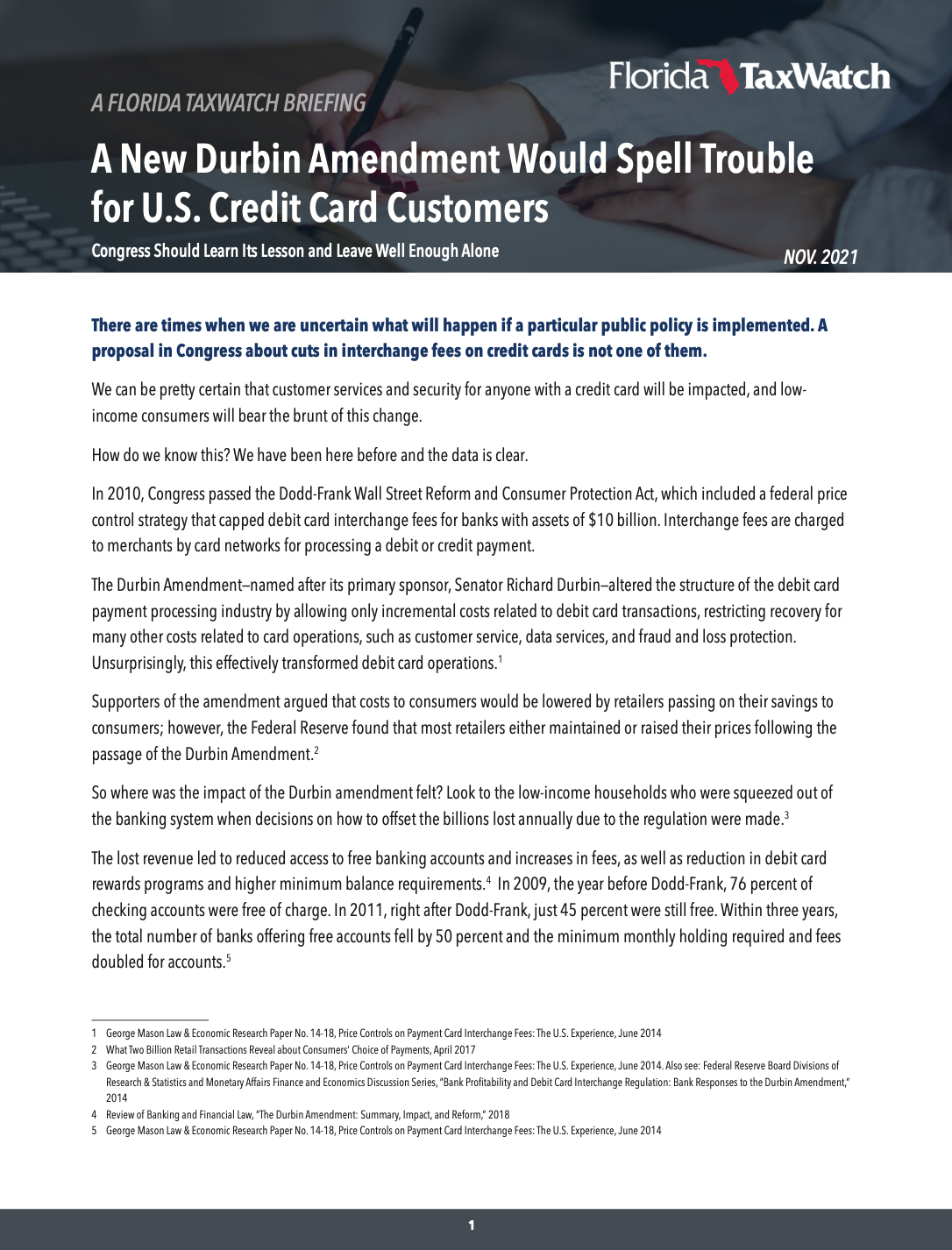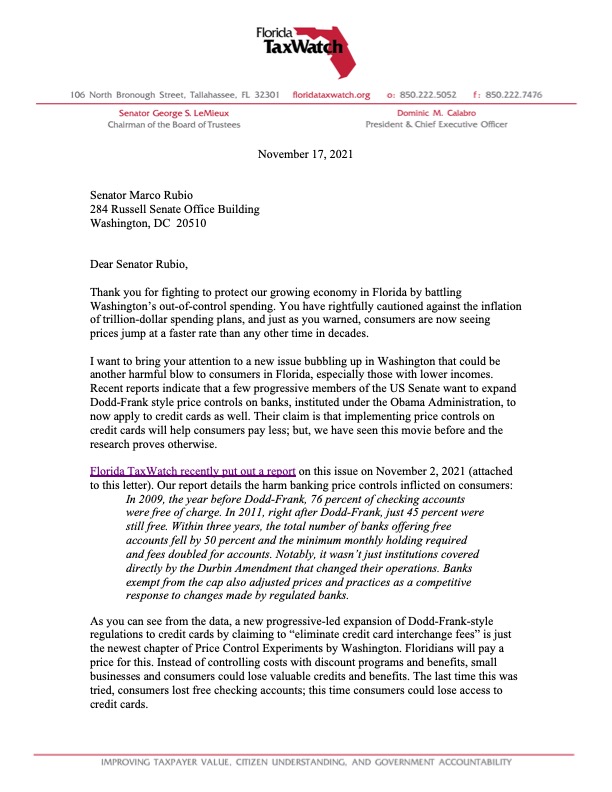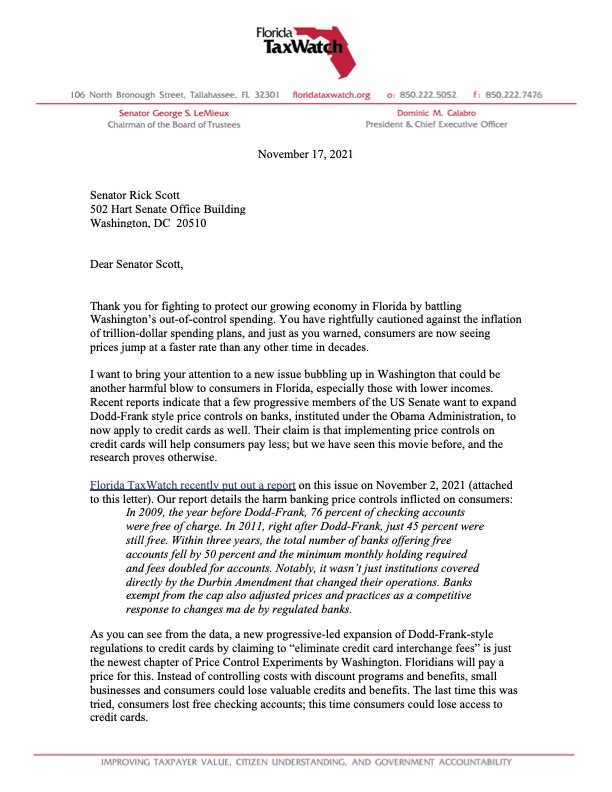A New Durbin Amendment Would Spell Trouble for U.S. Credit Card Customers
Congress Should Learn Its Lesson and Leave Well Enough Alone



There are times when we are uncertain what will happen if a particular public policy is implemented. A proposal in Congress about cuts in interchange fees on credit cards is not one of them.
We can be pretty certain that customer services and security for anyone with a credit card will be impacted, and low-income consumers will bear the brunt of this change.
How do we know this? We have been here before and the data is clear.
In 2010, Congress passed the Dodd-Frank Wall Street Reform and Consumer Protection Act, which included a federal price control strategy that capped debit card interchange fees for banks with assets of $10 billion. Interchange fees are charged to merchants by card networks for processing a debit or credit payment.
The Durbin Amendment—named after its primary sponsor, Senator Richard Durbin—altered the structure of the debit card payment processing industry by allowing only incremental costs related to debit card transactions, restricting recovery for many other costs related to card operations, such as customer service, data services, and fraud and loss protection. Unsurprisingly, this effectively transformed debit card operations.
Supporters of the amendment argued that costs to consumers would be lowered by retailers passing on their savings to consumers; however, the Federal Reserve found that most retailers either maintained or raised their prices following the passage of the Durbin Amendment.
So where was the impact of the Durbin amendment felt? Look to the low-income households who were squeezed out of the banking system when decisions on how to offset the billions lost annually due to the regulation were made.
The lost revenue led to reduced access to free banking accounts and increases in fees, as well as a reduction in debit card rewards programs and higher minimum balance requirements. In 2009, the year before Dodd-Frank, 76 percent of checking accounts were free of charge. In 2011, right after Dodd-Frank, just 45 percent were still free. Within three years, the total number of banks offering free accounts fell by 50 percent and the minimum monthly holding required and fees doubled for accounts.